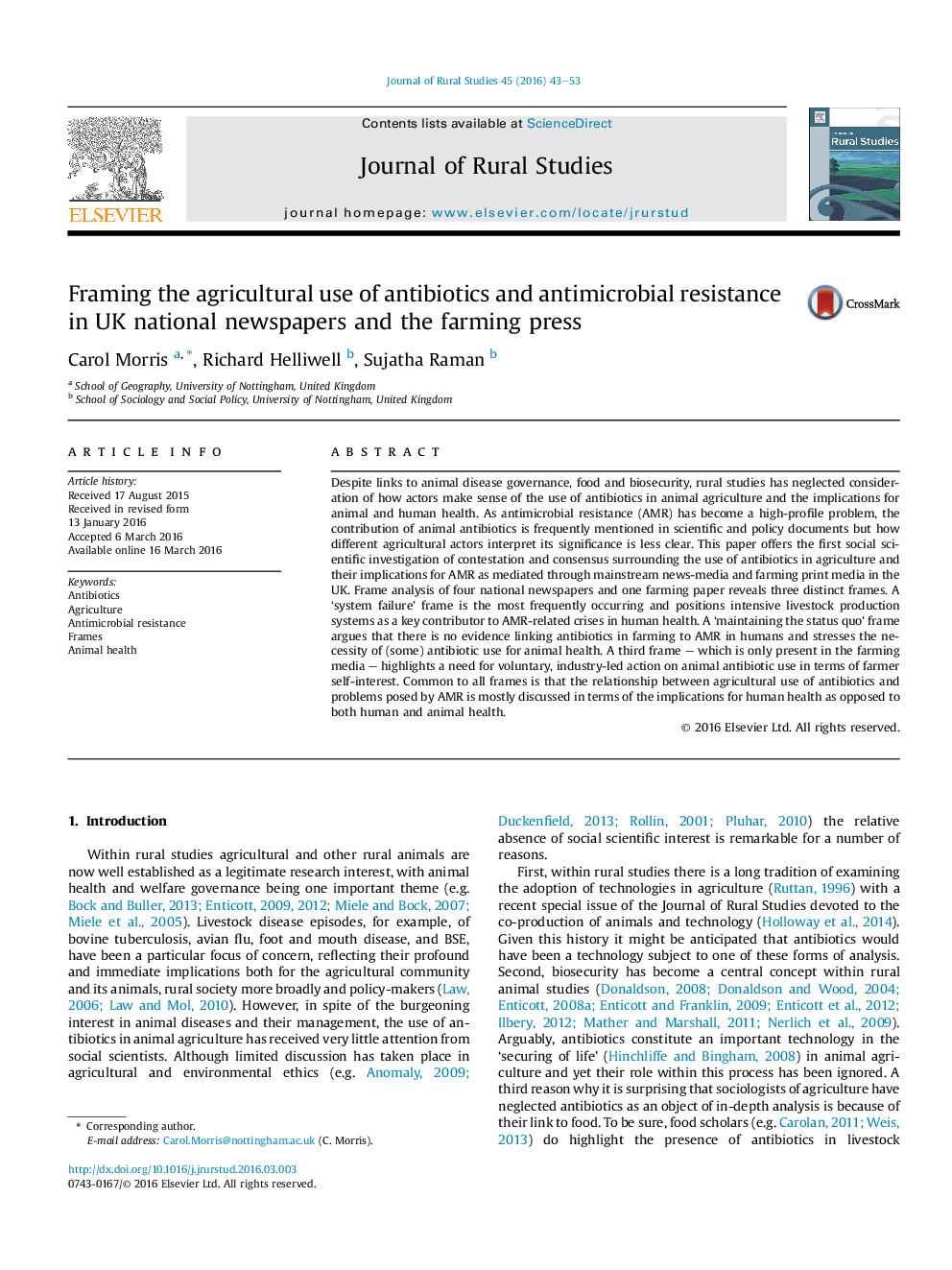| Article ID | Journal | Published Year | Pages | File Type |
|---|---|---|---|---|
| 6545401 | Journal of Rural Studies | 2016 | 11 Pages |
Abstract
Despite links to animal disease governance, food and biosecurity, rural studies has neglected consideration of how actors make sense of the use of antibiotics in animal agriculture and the implications for animal and human health. As antimicrobial resistance (AMR) has become a high-profile problem, the contribution of animal antibiotics is frequently mentioned in scientific and policy documents but how different agricultural actors interpret its significance is less clear. This paper offers the first social scientific investigation of contestation and consensus surrounding the use of antibiotics in agriculture and their implications for AMR as mediated through mainstream news-media and farming print media in the UK. Frame analysis of four national newspapers and one farming paper reveals three distinct frames. A 'system failure' frame is the most frequently occurring and positions intensive livestock production systems as a key contributor to AMR-related crises in human health. A 'maintaining the status quo' frame argues that there is no evidence linking antibiotics in farming to AMR in humans and stresses the necessity of (some) antibiotic use for animal health. A third frame - which is only present in the farming media - highlights a need for voluntary, industry-led action on animal antibiotic use in terms of farmer self-interest. Common to all frames is that the relationship between agricultural use of antibiotics and problems posed by AMR is mostly discussed in terms of the implications for human health as opposed to both human and animal health.
Related Topics
Life Sciences
Agricultural and Biological Sciences
Forestry
Authors
Carol Morris, Richard Helliwell, Sujatha Raman,
